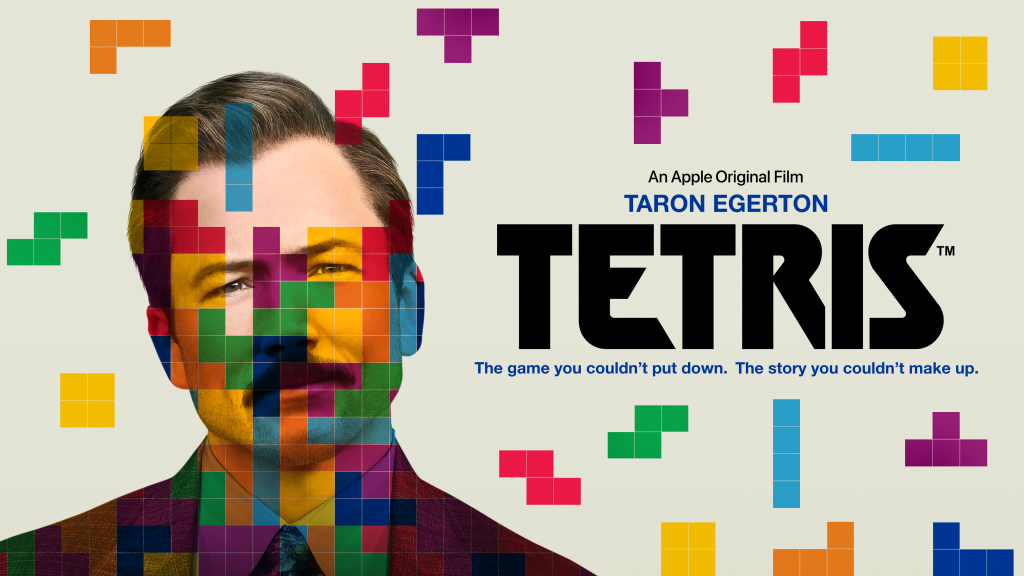There is nothing cinematic about Tetris: moving blocks, trying to fill rows, and watching the screen slowly but inevitably fill up. But there is something cinematic about how the game was created and popularized. The story involves Cold War intrigue, corporate espionage, political corruption, and the triumph of capitalism over communism. Apple TV’s Tetris includes all of these elements while telling the intertwined stories of the man who created the game—and the entrepreneur who helped bring it out from behind the Iron Curtain.
A scrappy family man who grew up in New York City after emigrating to America, Henk Rogers (Taron Egerton) is an archetypal American hero. The perpetual underdog in the business world discovers Tetris purely by chance in 1988 and falls in love with the game. He puts his company, and even his home, on the line to finance bringing it to the world at large. Rogers is soon drawn into a world of lies and backhanded dealings thanks to business tycoon (and suspected Soviet spy) Robert Maxwell (Roger Allam) and his son Kevin Maxwell (Anthony Boyle), who claim to control the rights to Tetris. Except they don’t.
Rogers flies to the Soviet Union under the false pretense of being a tourist to try to negotiate with the communist government. There he meets and befriends the inventor of Tetris, Alexey Pajitnov (Nikita Efremov), while trying to navigate the corrupt late-Soviet bureaucracy. Some creative license is taken—there was never, according to Rogers and Pajitnov, a car chase during negotiations, though one appears in Tetris—but the film presents a mostly faithful version of the complicated turn of events that led to the game becoming a global phenomenon.
The film captures the feel of the Soviet Union well: The KGB is everywhere; there isn’t enough food to go around; Pajitnov’s family lives in constant fear of him being barred from employment like his father; and Pajitnov himself isn’t allowed to profit from the wildly successful game he created. In fact, he didn’t make a dime off the game until he was finally able to move to the United States after the fall of the Soviet Union.
(It is no surprise that Pajitnov has been critical of Vladimir Putin and the invasion of Ukraine. He knows what he’s talking about when he speaks out for those who suffer at the hands of the Russian government.)
Egerton and Efremov carry the film with their on-screen chemistry. Their two characters, seemingly so different, both have a love for computer programming and a desire for independence that seems just out of reach—Rogers because of his past financial failures, Pajitnov because of the oppression he experiences on a daily basis. Egerton gives a performance reminiscent of 1980s-era Michael J. Fox, and it is difficult not to root for him even as his character descends into obsession that threatens the well-being of his family. Efremov gives a stirring performance as a brilliant man whose hunger for more recalls what Peter Schramm’s father told him when they prepared to emigrate to the United States: “We were born Americans, but in the wrong place.”







Please note that we at The Dispatch hold ourselves, our work, and our commenters to a higher standard than other places on the internet. We welcome comments that foster genuine debate or discussion—including comments critical of us or our work—but responses that include ad hominem attacks on fellow Dispatch members or are intended to stoke fear and anger may be moderated.
With your membership, you only have the ability to comment on The Morning Dispatch articles. Consider upgrading to join the conversation everywhere.